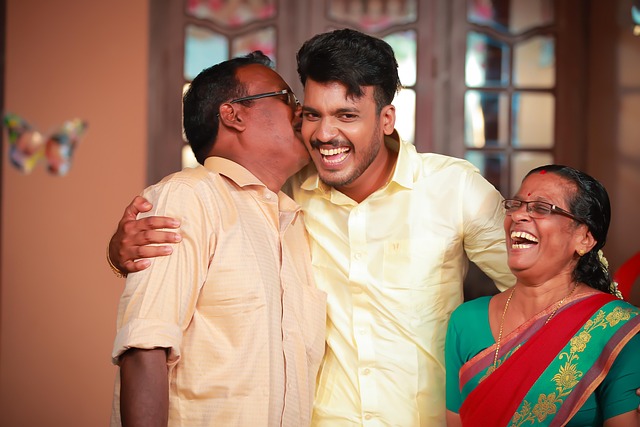Choosing a country for surrogacy requires understanding its legal framework and cultural norms regarding surrogacy. Language differences necessitate expert guidance, clear communication strategies, and professional translation services. Building trust through cultural sensitivity and open dialogue is crucial. Thorough research ensures compliance with laws and fosters an environment of respect, easing the process for all parties involved.
“Navigating the complex world of surrogacy requires careful consideration, especially when cultural and linguistic barriers are involved. This comprehensive guide delves into the intricacies of managing differences in surrogate mother arrangements across borders. From understanding cultural nuances to overcoming legal and language obstacles, we explore essential strategies.
When choosing a country for surrogacy, factors like local laws, healthcare standards, and communication methods significantly impact success rates. Discover effective communication strategies to build trust and ensure a smooth process.”
Understanding Cultural Differences in Surrogacy
When considering surrogacy, understanding cultural differences is paramount. Each country has its own norms and practices surrounding reproduction and family structures, which can significantly impact the experience for all parties involved. For prospective parents, choosing a country for surrogacy involves more than just legal considerations; it requires an awareness of cultural contexts and expectations.
Cultural differences manifest in various ways, from communication styles to views on parental rights and responsibilities. Some countries may have strict regulations regarding surrogate mother compensation, while others are more lenient. Additionally, cultural attitudes towards surrogacy can range from acceptance to stigma, influencing the level of openness and support available to all individuals involved in the process. Navigating these differences requires sensitivity, patience, and a commitment to cross-cultural understanding.
Legal and Language Barriers: Navigating Risks
Choosing a country for surrogacy involves careful consideration, especially when it comes to legal and language barriers. These factors can significantly impact the entire process and well-being of all involved parties. Legal frameworks regarding surrogacy vary widely across countries, with some offering clear regulations while others have murky or non-existent laws. Language differences further complicate matters, as legal documents and contracts must be accurately translated and understood by all participants to avoid any potential risks or misunderstandings.
When navigating these challenges, it’s crucial to seek expert guidance from attorneys specializing in international surrogacy. They can ensure that the chosen country’s laws align with your goals and protect your rights. Additionally, language services should be integrated into your plan to facilitate clear communication throughout the journey. By addressing these barriers proactively, prospective parents can better navigate the risks and make informed decisions when embarking on their surrogacy journey.
Choosing a Country: Factors for Consideration
When considering choosing a country for surrogacy, it’s essential to weigh various cultural and linguistic factors that can impact your experience. The legal framework surrounding surrogacy varies widely across nations, so thorough research is paramount. Look into the specific laws, regulations, and requirements regarding surrogacy in each potential country, ensuring they align with your needs and expectations.
Additionally, cultural norms and language barriers can significantly influence communication between all parties involved—the surrogate mother, intended parents, medical professionals, and legal advisors. Consider countries where the primary languages are spoken fluently by a large portion of the population, facilitating easier communication. Also, examine the cultural attitudes towards surrogacy; some societies may have more open and supportive environments, which can make the entire process smoother and less stressful for all involved.
Building Trust: Effective Communication Strategies
Building trust is a cornerstone when navigating language and cultural differences in surrogacy, especially when choosing a country for this journey. Effective communication strategies are vital to ensuring everyone involved understands and respects each other’s needs. Overcoming linguistic barriers requires clear and concise language, often facilitated by professional translation services or multilingual staff at reputable surrogacy agencies. This ensures that all documents, agreements, and conversations are accurately conveyed.
Additionally, cultural sensitivity plays a significant role in fostering trust. Recognizing and embracing diverse beliefs, customs, and expectations can create an environment of mutual respect and understanding. When considering a country for surrogacy, research its cultural norms and legal framework to ensure they align with your values and expectations. Open dialogue, active listening, and adaptability are key tools in building strong relationships that transcend language and culture differences.
Managing language and cultural differences is an essential aspect of successful surrogacy, which involves careful consideration when choosing a country. As previously mentioned, legal frameworks and communication play pivotal roles in mitigating risks. By adopting effective strategies, such as employing professional translators and fostering open dialogue, prospective parents can build trust with their surrogate mothers and navigate the complexities of international surrogacy seamlessly. In terms of choosing a country for surrogacy, prioritizing cultural alignment and robust legal protections is crucial to ensure a safe and fulfilling experience for all parties involved.
